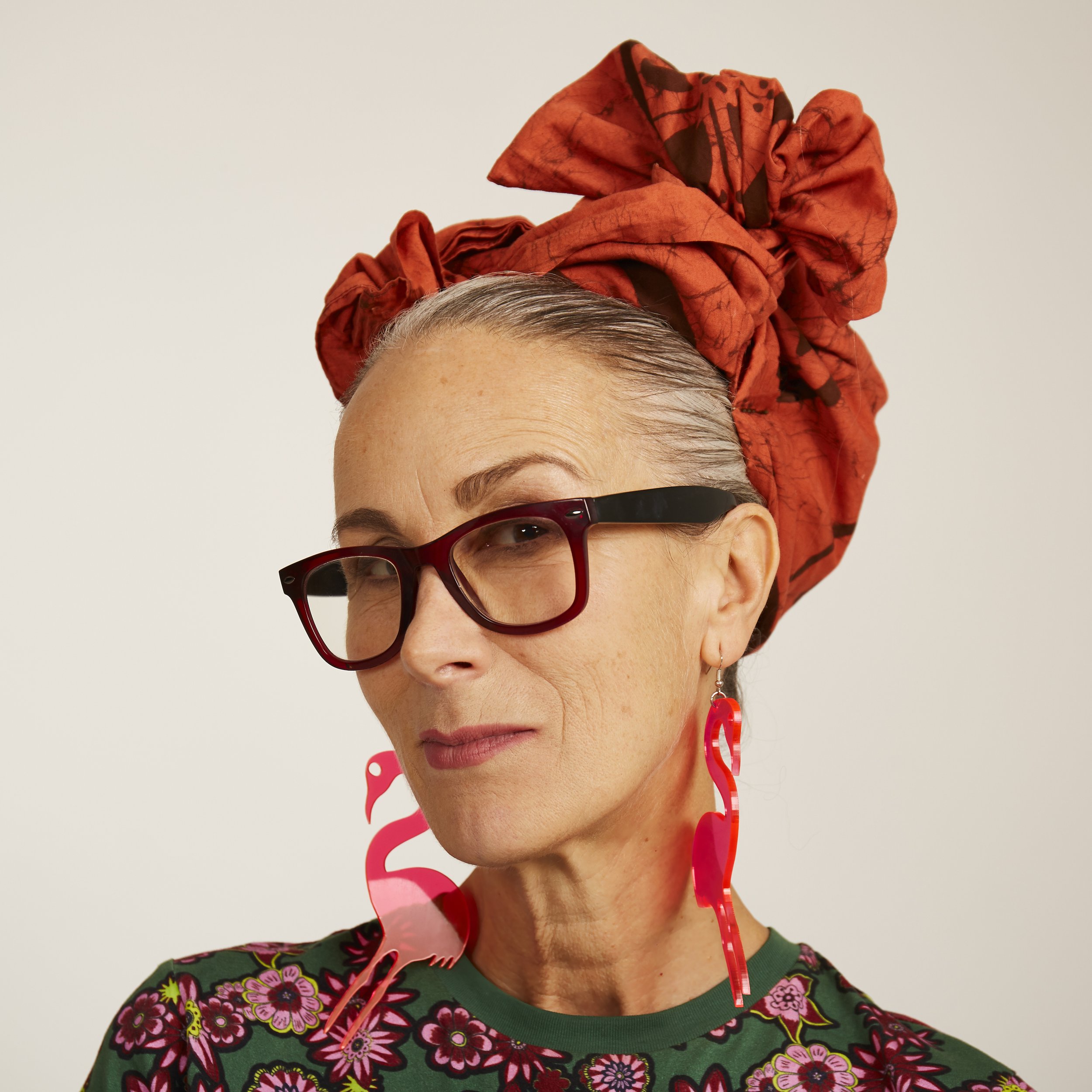We all know clothes have meaning, beyond just looking nice. We’ve often talked on this podcast about the importance of how they are made. This week, we’re considering how fashion’s meaning stretches beyond supply chains and our wardrobes, to shape our culture and the way we see ourselves collectively. How does fashion see itself when it comes to race and privilege? How about the male gaze?
We sit down with Caryn Franklin, journalist, style icon, fashion citizen (not consumer, please!), one-time presenter of The Clothes Show and all-time national treasure. These days her work centres on education and activism - she’s a visiting professor of diverse selfhood at Kingston School of Art, in London, and gained her MSc in applied psychology specialising in selfhood, objectification, inclusivity and gender bias.
Partly, this interview is a personal one about a life in clothes but it’s also a provocation: How can we use fashion as a vehicle for positive self-esteem, rather than allowing it to make too many of us feel small, too much of the time?
All up, rollocking good chat with Caryn Franklin, MBE. Enjoy!
NOTES
ABOUT
CARYN FRANKLIN started her work life as a fashion editor at i-D MAGAZINE under the aegis of publisher/ art director Terry Jones. She started as a presenter on The Clothes Show in 1986 and stayed for 12 years, helping put London on the map as a hub of emerging talent while she was at it.
In 2013 she collected an MBE for services to Positive Body Image and Diversity in Fashion.
Her latest book is in audio format, co-written with Professor Keon West. Buy SKEWED, DE-CODING MEDIA BIAS, How Bias Distorts Our View of Other People and How to Make it Stop on Audible.





















